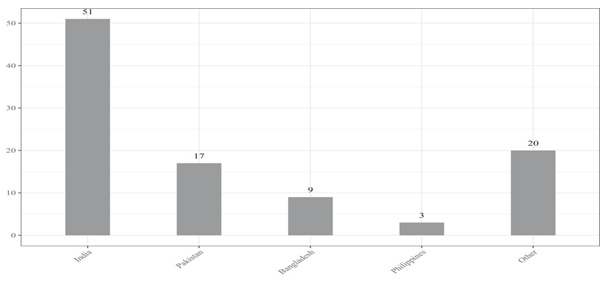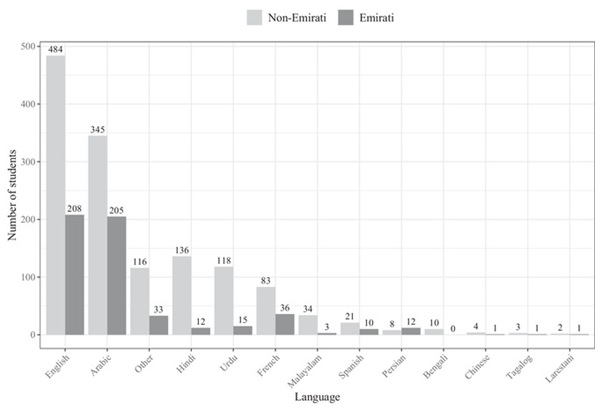
The Arab Emirates is a country of skyscrapers, multicultural cuisines, amazing shopping malls, outdoor activities, and more that attract a lot of tourists all year round. Well, it's not only the tourists but also working professionals who prefer this country for its diverse workspace and numerous benefits. All of these interesting facets make UAE an ideal teaching destination for all who have completed their teacher training course in Dubai and also overseas teachers.

However, the very fact that the UAE is the most popular destination also makes it the most competitive one. Hence the teaching requirements are a bit strict and rigid as compared to other parts of the world. Since expats account for more than 50% of the country’s population, English is one of the dominant languages. Thus, the demand for English teachers is always high. If you are also an aspiring teacher, we are here to spill the tea.
What Are The Requirements To Teach In Dubai?
Talking about qualifications, there are no unified criteria for what educational organizations are looking for in terms of credentials and experience. Depending on the position you are applying for, every school, college, and the university has a different set of requirements.
For example, if you are looking to be a secondary-level teacher in an international school in Sharjah and Abu Dhabi, you need to have a degree in the subject you are planning to teach. If you want to teach maths, you must have a Bachelor's or Master's degree in Maths followed by a Bed or PGCE. Dubai is a bit more relaxed when it comes to teaching requirements. Here, Non-Qualified Teachers (NQTs) are also welcome to apply even for secondary school.
License, Curriculum, And Experience Requirements
Most public schools in the UAE typically require you to have a Bachelor’s degree in the subject you are planning to teach. Most prestigious institutions also want you to possess a teaching certification like a B.ed or PGCE from your home country.
In 2017, the UAE introduced a pilot phase of the UAE Teacher's Licensing System. It says that by the end of 2020, all the teachers, managers, principals, and vice-principals across all private and public schools will need to have a teaching license to legally work in the UAE.
The licensing system is developed by the National Qualifications Centre, Knowledge and Human Development Authority (KHDA), Ministry of Education, Abu Dhabi Centre for Technical and Vocational Education Training and Department of Education Knowledge. You can obtain the licence by clearing two tests- one in pedagogy and the other one in your respective specialisation.
In case, you cannot meet the exam criteria then you can sign of for the customised training courses and you will be allowed to redo any failed assignment within 24 months.
However, if you are someone who holds a passport from any native English country then you can bypass the teaching license requirements. But if you are a non-qualified teacher outside the USA, UK, Canada, New Zealand, Australia, or South Africa, then you might be hired for science and math positions rather than English.
When you are planning to work in the UAE, you should have at least 2-3 years of full-time experience relevant to the subject you are planning to teach. Moreover, the country expects expat teachers to be well qualified, especially in the IB or American Core curriculum. If you have hands-on experience in these curriculums then you will have a better chance of securing a teaching position in your preferred city.
“But I Don’t Have A B.ed” What Now?
One of the obstacles that expat teachers face while looking for a job in the Emirates is that they don't have a teaching license.
But, if you want to land an English teaching position in the UAE, then there is another route that you might be willing to try. A globally recognized TEFL certificate will be able to get you past all the rigid requirements. Most institutions ask for a minimum of 120 hours of TEFL certification. But if you want to teach in prestigious institutions like language schools, corporate sectors, or even international schools then 200 hours or higher might give you an edge.

In a nutshell, the UAE economy is looking to diversify from its conventional oil industry and hence the demand for the English language is growing exponentially. Since the number of native teachers based in and around Dubai is in short supply, there is a vast opportunity for non-native speakers provided they meet the basic requirements.
Here are the three basic metrics you will need to tick if you want to be a TEFL teacher in the UAE without a B.ed.
The Bottom Line
Teaching in the UAE can be much more than availing of the economic benefits. It can often be an overarching motivation for people trying to make the Emirates transitions. Moreover, aspirants who have pursued a teacher training course in Dubai, might want to reap the potential employment security the country has to offer. So what are you waiting for? Prepare your CV and make the move now!